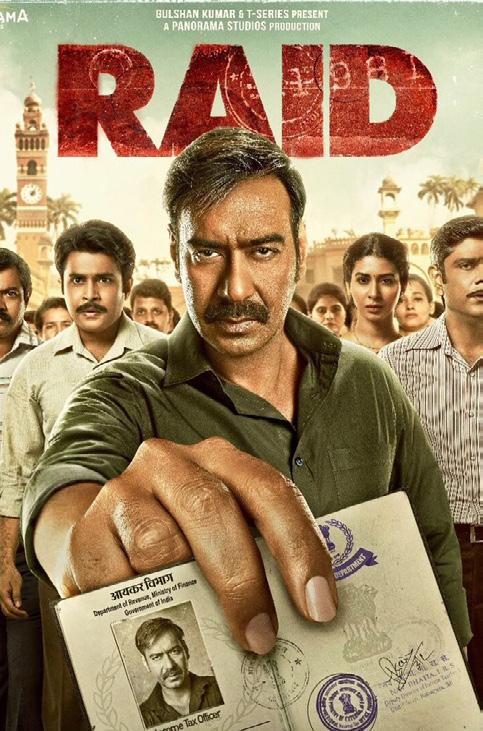
4 minute read
A protection we cannot a ord to lose
from 2018-04 Melbourne
by Indian Link
A flourishing society also requires more than just freedom of speech; it requires security, stability, a just legal system and a vibrant economy.
BY MATT KEAN
Australia is a country of great diversity. You can see it in the faces of the people that you work with. You can see it in the restaurants that line the main streets of our towns. And you can see it in the variety of religious and cultural events celebrated around the country: Chinese New Year, Diwali, Hanukkah, Ramadan and Christmas to name a few.
better employment opportunities.
However, primary education in schools is in a dire state, with “25 per cent of teachers absent from classes during spot checks across India… The Indian state has failed to raise spending on education, which remains roughly at 3%, well below the expenditure in many Western countries.” Higher education remains equally dodgy. Vocational learning suffers while rote learning with the myopic goal of clearing examinations still gets prime importance.
Further, the lack of employment and basic infrastructure continues to exacerbate poverty and social inequities, much like at the time of British imperialism.
Jeffrey also offers a brief account of the colonial period and how the East India Company filled Britain’s coffers by impoverishing India, and the nationalist movement that drove them out. The need for a new identity for a newly independent nation and the debatable notion of caste is also succinctly handled. for a newly independent nation and the
That is why freedom of speech is not absolute. In this country, it is criminal to disclose secrets which risk the lives of Australian soldiers. It is likewise a crime for a corporate executive to disclose market sensitive information to his mates. The law protects us from slander and protects privileged comments made to our lawyers.
However, the treatment of the Aboriginal peoples in this country stands as a chilling reminder that tolerance has not always been embraced. The Cronulla riots similarly reminds us how quickly what we have achieved can be put at risk.
As a society, we recognise that these restrictions do not hurt our democracy or way of life. Indeed, we understand that they are necessary to maintain it. And laws against hate speech are no less necessary, because racism and bigotry tear at the heart of our social fabric.
Hope again resurfaces in the chapter, Making India Work, with Jawaharlal Nehru’s speech on the eve of Independence on 14 August 1947 - “A new hope comes into being, a vision long cherished materialises.”
The proposed amendments to the Racial Discrimination Act were put forward on the basis that the current wording of Section 18C inappropriately constrains our freedom of speech.
Post-independence, reimagining and rethinking India was the main agenda for those at the helm. Jeffrey notes three major changes between 1989 and 1992. The first one relates to that of caste, where leaders from backward groups and classes became more active in politics. At the same time, another major change took shape in the form of Hindu nationalism with the formation of the Bharatiya Janata Party (BJP) in 1977. The third major
That section makes it unlawful to do an act in public which “is reasonably likely… to offend, insult, humiliate or intimidate another person or a group of people” if “the act is done because of the race, colour or national or ethnic origin of the other person shift in the early 1990s was economic reforms that paved the way for substantial liberalisation through private sector participation, increased foreign direct investment and freeing capitalists from unhelpful bureaucracy and regulations. While the reforms reduced poverty, they deepened urban-rural and gender divides and aided religion and caste-based inequalities.


There is no doubt that freedom of speech is important but it is important because of the role it plays in our democracy. Freedom of speech ensures that when you or I go to the ballot box we can make an informed decision about who to vote for.
However, hope survived.
And strengthened itself through social revolutions that made a place in people’s conscience through the reach of technology and education, and the notions of citizenship and civil society. These have also played a big part in encouraging aspirations and cultural expression.
Racism and bigotry leave people feeling exiled in their own home. They do not improve the quality of public debate nor do they assist the wise completion of a ballot paper. They are insidious because they attack a person because of their identity; their heritage. They imply that a person is inferior because of who they are. They are hurtful, divisive and can lead to individuals and entire communities feeling unwanted, unvalued and second-class.
Apart from hope, Jeffrey also points out the country’s inherent conflicts and contradictions in its social and cultural fabric. It is perhaps difficult to qualify India under one single epithet, given her many contradictions. The wonder, however, is in the fact that she continues to thrive in her contradictions.
As a society, we recognise that restrictions on free speech do not hurt our democracy or way of life. Indeed, we understand they are necessary to maintain it. And laws against hate speech are no less necessary, because racism and bigotry tear at the heart of our social fabric
Freedom of speech is necessary so that as a community, we can debate political ideas and so that individuals can have a say on decisions that affect them.
Section 18C ensures that everyone has a role to play in that debate.
Comments today can also revive memories of past wrongs. Unfortunately, few ethnic groups have been spared the pain of racially justified persecution. Examples such as slavery in the United States and the Holocaust are well known. In recent times, the a vibrant, rich and diverse society. A society not focused on the differences between us, but founded on the strengths our differences afford us. Section 18C stands, not as a threat to freedom of speech, but as a protector of the purposes which that freedom serves, and as a guard to an achievement exceptional in this time and rare in times before.
Matt Kean is the Member for Hornsby and Parliamentary Secretary for Communities.







